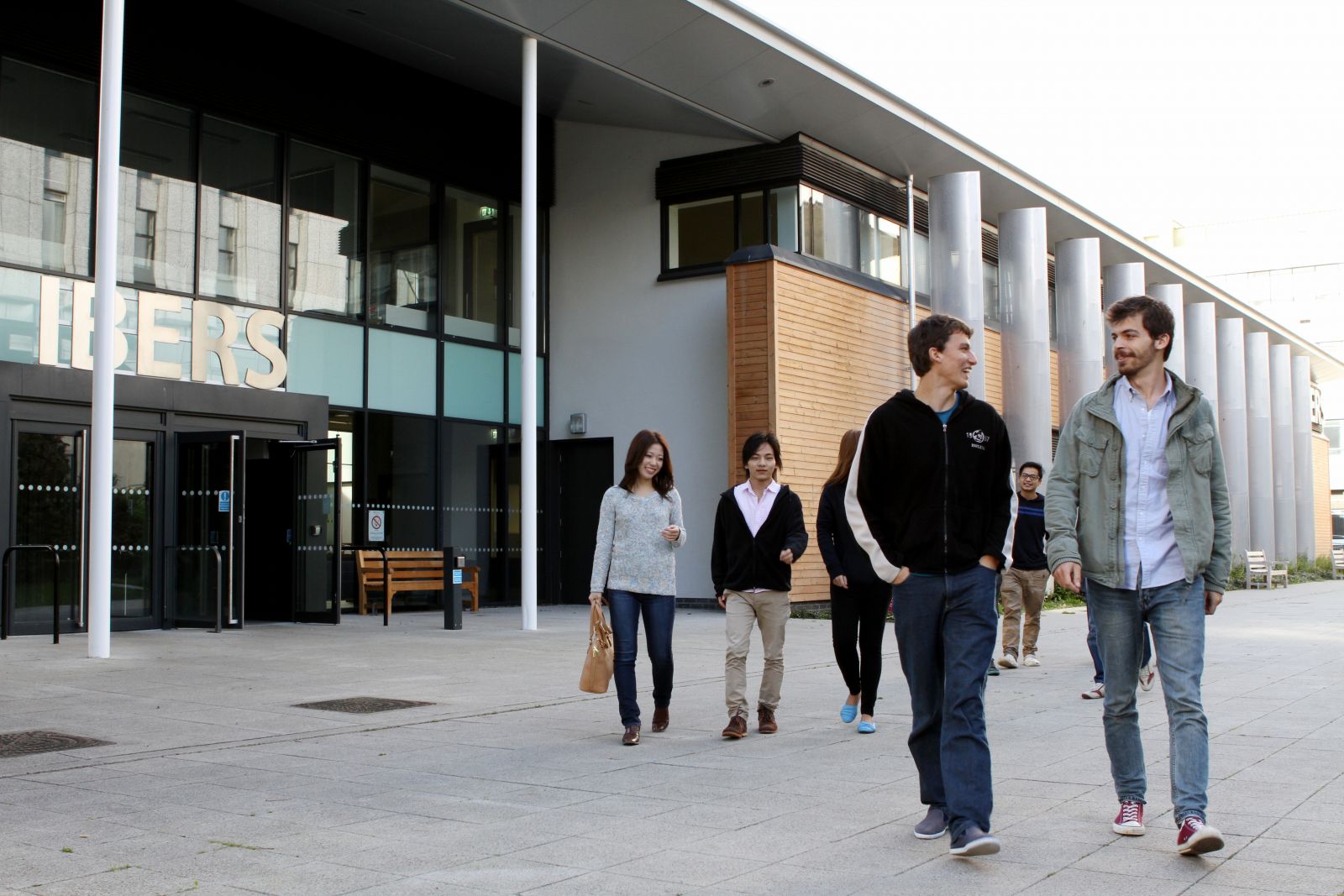NELSON Mandela and Mahatma Gandhi are among the world’s most famous law graduates. So too is Monty Python comic John Cleese and ... Batman. It’s true! The Dark Knight’s diploma from Yale Law School is visible in a 1974 comic.
It just goes to show how far a law qualification can take you and the high regard in which law alumni are held the world over. Indeed, studying law gives you lifelong skills respected by employers across the globe. Perhaps no other field offers quite so many career options, from legal practice to politics, journalism, and even TV presenting.
A law degree does not guarantee a high salary. However company lawyers, including patent lawyers and attorneys, are among the world’s best paid professionals. And in the UK, the starting salary for a barrister is £25,000 ($41,000), potentially hitting up to £1million ($1.6million) after 10 years.
|
|
| The Old Bailey courthouse in London. Pic by Lonpicman |
Why the UK?
The English court system is respected throughout the world and English law is also the first choice for international business, governing many large commercial arrangements between countries.
One third of the world’s population, including the US, India, Pakistan and Malaysia, have legal systems that originated in English common law.
Four of the world’s top 10 law firms, based on the number of lawyers employed, are headquartered in the UK. These are multinational firms with global career opportunities. For example, Clifford Chance, has offices in 25 countries and 72 per cent of its lawyers are employed outside the UK.

How do I become a solicitor in the UK?
To be a lawyer in the UK, you could become a general solicitor, who advises on legal issues, or a fully qualitfied barrister, who represents people in a courtroom. It is possible to become a solicitor without a law degree but most students qualify by the law graduate route:
1. Obtain a three-year undergraduate degree in law (LLB) in the UK or an undergraduate degree in any other subject followed by a legal conversion course.
2. Take the one-year Legal Practice Course (LPC)
3. Gain practice-based training (training contract) incorporating the Professional Skills Course – two years full-time
4. Admission to the roll of solicitors.
How do I qualify as a barrister in the UK?
Unlike solicitors, barristers are able to provide specialist legal representation in a court, There are four main steps to becoming a barrister in the UK:
1. Obtain a three-year undergraduate degree in law (LLB) in the UK or an undergraduate degree in any other subject followed by a legal conversion course.
2. Take the one-year Bar Professional Training Course (BPTC).
3. Pupillage - spend one year as a pupil in barristers’ chambers or in another organisation approved by the Bar Standards Board as a Pupillage Training Organisation (PTO).
4. Obtain tenancy in a barristers’ chambers or go into practice as an employed barrister.

Can I become a lawyer in the UK if I’ve studied law in another country?
Overseas law degrees do not automatically give international students the ability to qualify as a UK solicitor or barrister. You will have to apply to the Solicitors Regulation Authority (SRA) if you want to be a solicitor, or the Bar Standards Board if you want to be a barrister, to gain a Certificate of Academic Standing.
This certificate will prove you are eligible to do a Graduate Diploma in Law, which takes one year full-time or up to 22 months part-time.
After that you can go on to the Bar Professional Training Course or Legal Practice Course as outlined above and gain practical training.
In some circumstances, your Certificate of Academic Standing may give you direct entry to these courses without having to complete a Graduate Diploma in Law.
Another route is to complete an LLM or postgraduate degree, followed by the GDL and LPC.
What are the job prospects?
Studying law opens up a huge range of career opportunities. In some countries, including the United States, lawyers are called attorneys and no distinction is made between those who appear in court and those who do not.
In other countries, including the UK, lawyers are usually either barristers or solicitors/ legal executives. Barristers (or advocates as they are known in some countries) advise clients and represent them in courts and tribunals. They are almost always self-employed and need to be articulate and think and communicate clearly under pressure. Experience of debating, public speaking, politics, business and even acting is useful to get into this competitive career.
A solicitor is usually the first person a member of the public or company will go to with a legal problem. They provide confidential expert legal advice and may work as solo practitioners or be employed in law firms with several thousand employees and offices around the world. Solicitors may work in criminal courts as prosecutors or advisors.
A law degree is also a desirable asset in a wide range of careers, including politics, journalism, accountancy, advice work, trading standards, police work, human resources and the civil services.
Where can I study law in the UK?
Here are some of the universities in the UK that offer law degrees to international students:
University of the West of England
Don’t just learn the law: learn how to be a lawyer.
That’s the message from the University of the West of England, based in Bristol, the biggest city in the south west of England.
UWE offers real-world experiences and state-of-the-art courtrooms where students can practise their advocacy and lawyering skills.
All the university’s LLBs are qualifying law courses, the first step to becoming a solicitor or barrister.
The university has strong links with several professional organisations and gives students the chance to be mentored by legal practitioners and business professionals who give advice on CVs, interview technique and even career choices. Read the Full Profile...
Swansea University
With particular expertise in maritime law, energy law and criminology, Swansea University’s School of Law is popular with undergraduate and postgraduate students from across the world.
Undergraduates on the single honours course can choose to specialise in their final year on subjects such as commercial law, e-commerce and intellectual property law or study a variety of fields. A wide variety of joint honours are also available, including law and politics, law and media, and law and criminology.
The School’s postgraduate teaching and research activities have recently been commended by the Quality Assurance Agency for Higher Education. Individual staff research specialisms range across a wide spectrum of subject areas - from theoretical to empirical approaches and covering areas as diverse as Commerce, Crime, Human Rights, Family, Maritime, Trade, Intellectual Property and Socio-Legal and the interdisciplinary study of Law. The School also offers an LLM Pre-sessional Course, which is an opportunity for prospective LLM students to improve their understanding of English legal terminology. Read the Full Profile...
The University of Law
This private university has trained more people in English law than any other institution. Working with 90 of the top 100 UK law firms, and with four of the top five global firms, it can open a world of career opportunities to anyone aspiring to international legal practice around the globe.
Small group workshops and lectures are delivered by highly-qualified tutors who all have extensive practice experience solicitors, barristers or judges. And the wide range of extra-curricular legal activities such as pro bono opportunities, external placements, mentoring and Legal Advice Centres are designed to support your career aspirations.
The university has eight sites across the UK, all close to thriving legal hubs and with excellent transport links. The University of Law regularly attracts international postgraduate students from top UK universities. Its first Chancellor, Fiona Woolf CBE, is one of the UK’s most respected corporate lawyers and the new Lord Mayor of the City of London. Read the Full Profile...
Bangor University
This innovative university, near the sea and mountains of north Wales, scored a 93% overall satisfaction rate in the latest National Student Survey, placing it joint sixth of all UK law schools. All of Bangor Law School’s LLB degrees are recognised not only by the Law Society and Bar Councils of England and Wales, and Ireland, but also by the Bar Council of India.
And students have the option to combine their study of law with that of another subject, such as Accounting and Finance, Business Studies, Criminology, Social Policy and a European language. Postgraduates are offered a suite of LLM programmes. Bangor has particular expertise in International Law and Procurement Law, but also specialises in EU Law, Corporate Finance Law, Maritime Law, Banking Law, Commercial Law, Company Law, Administrative Law, Child and Family Law, and Intellectual Property Law. Read the Full Profile...
Aberystwyth University
The Department of Law and Criminology at this university on the west coast of Wales is one of the oldest and best-ranked in the UK and promises to enhance your job prospects in both law and non-law careers.
All teaching staff are engaged in research, some of it world-leading research in environmental law, European law, commercial law and IT law.
More of Aberystwyth’s graduates (91.3%) were in employment or further study six months after graduating than the national average (88.2%).
The university offers a huge range of courses, including Law and Accounting and Finance, Law and Business and Management, Law and Economics, Law and International Politics, Law with criminology and courses that combine law with various European languages. Read the Full Profile...

Leeds Metropolitan University
Based in a thriving northern city and legal hub, Leeds Metropolitan University attracts more applicants to its LLB course than to any other course. It offers a full range of undergraduate and postgraduate law courses, as well as a flourishing Law Research Unit. The teaching staff have significant expertise from their experience of working as solicitors or barristers, and law students also have contact with top legal professionals through the school’s external speaker programme and Mentoring Scheme, which encourages postgraduate students to link with a professional mentor.
Leeds Met law school has modern lecture theatres, a mock court room and dedicated resource room for postgraduate students. The Student Law Society is one of the most active groups at Leeds Metropolitan, with over 500 members.
Oxford Brookes Uni
With its cosmopolitan atmosphere and excellent credentials, Oxford Brookes University’s School of Law is a popular choice with international students. Its Pro Bono Scheme, mooting and client interviewing teams perform consistently highly both nationally and internationally.
The undergraduate LLB course is a qualifying law degree, covering all requirements set by the Solicitors Regulation Authority and the Bar Standards Board, the first necessary step to becoming a solicitor or barrister. Also available is the Graduate Diploma in Law (GDL) for graduates of non-law degrees.
The range of LLM courses enable postgraduate students to specialise in particular areas such as International Human Rights Law or International Trade and Commercial Law and to become involved in research activities. Each year, the law school hosts the Thames Valley Law Fair – an extremely valuable networking event attended by many potential employers.